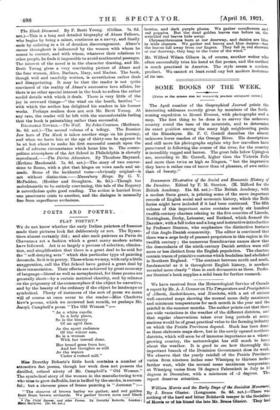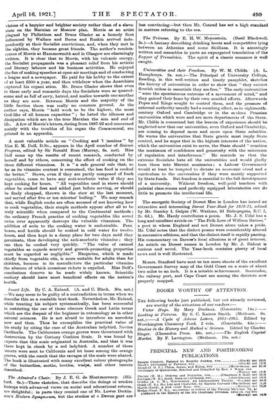WWiam Morris and the Early Days of the Socialist Movement.
By J. Bruce Gleaner. (Longman& 68. 6d. net.)—There was nothing of the hard and bitter Bolshevik temper in the Socialism of Morris or of his friend the late Mr. Bruoe Glazier. They ha(.1 visions of a happier and brighter society rather than of a slave- state on the Marxian or Moscow plan. Morris as an artist plagued by Philistines and Bruce Giesler as a homely Scot influenced by Wallace and Burns and Ruskin arrived inde- pendently at their Socialist convictions, and, when they met in the eighties. they became great friends. The author's reminis- cences of Morrie at Hammersmith and in Glasgow are charmingly written. It is clear that to Morris, with his volcanic energy, the Socialist propaganda was a pleasant relief from his artistic and literary labours and his business activities. He enjoyed the fun of making speeches at open-air meetings and of conducting a league and a newspaper. He paid for his hobby to the extent of at least £500 a year, and then withdrew when the Anarchists captured his organi ation. Mr. Bruce Giesler shows that even in these early and romantic days the Socialists were as quarrel- some and as full of envy, hatred, and malice towards one another as they are now. Between Morris and the majority of the little faction there was really no common ground. As the author says, Morris " held work to be the highest, the most God-like of all human capacities " ; he hated the idleness and dissipation which are to the true Marxian the aim and end of life. A few of Morris's letters, dating from 1887-92 and concerned mainly with the troubles of his organ the Commonweal, are printed in an appendix.



































 Previous page
Previous page